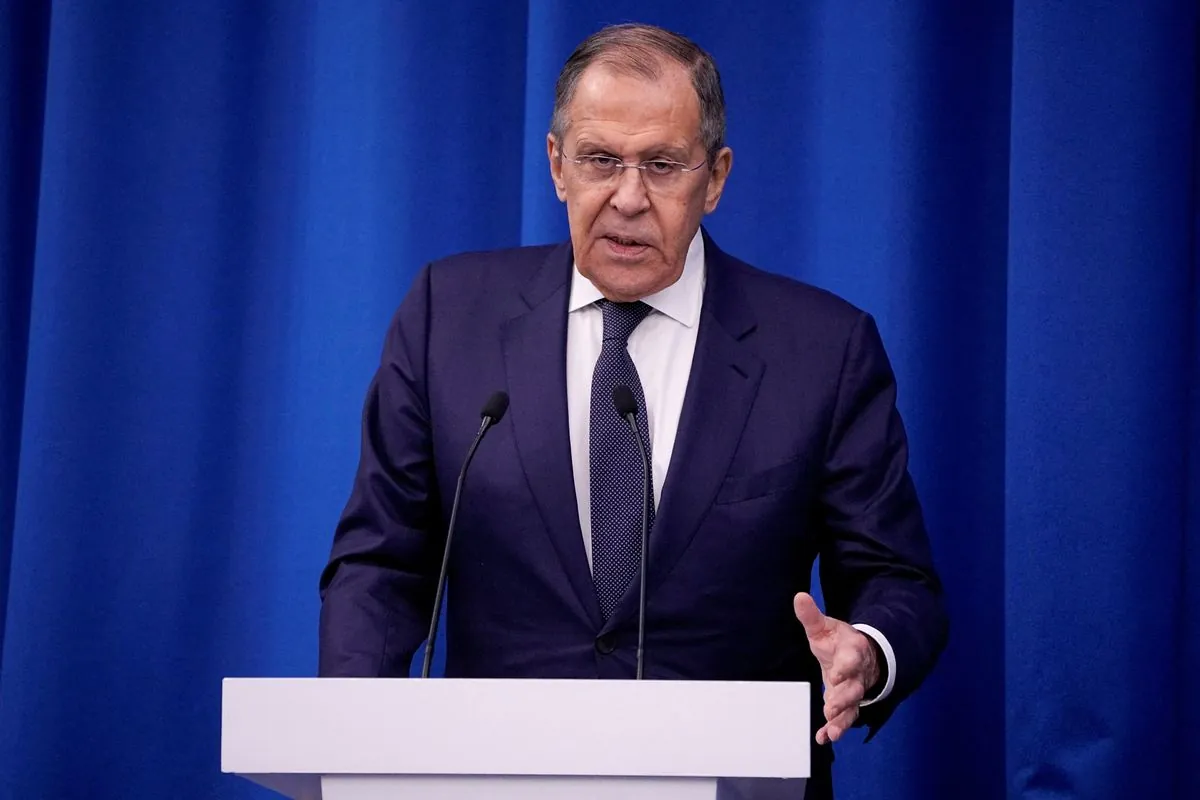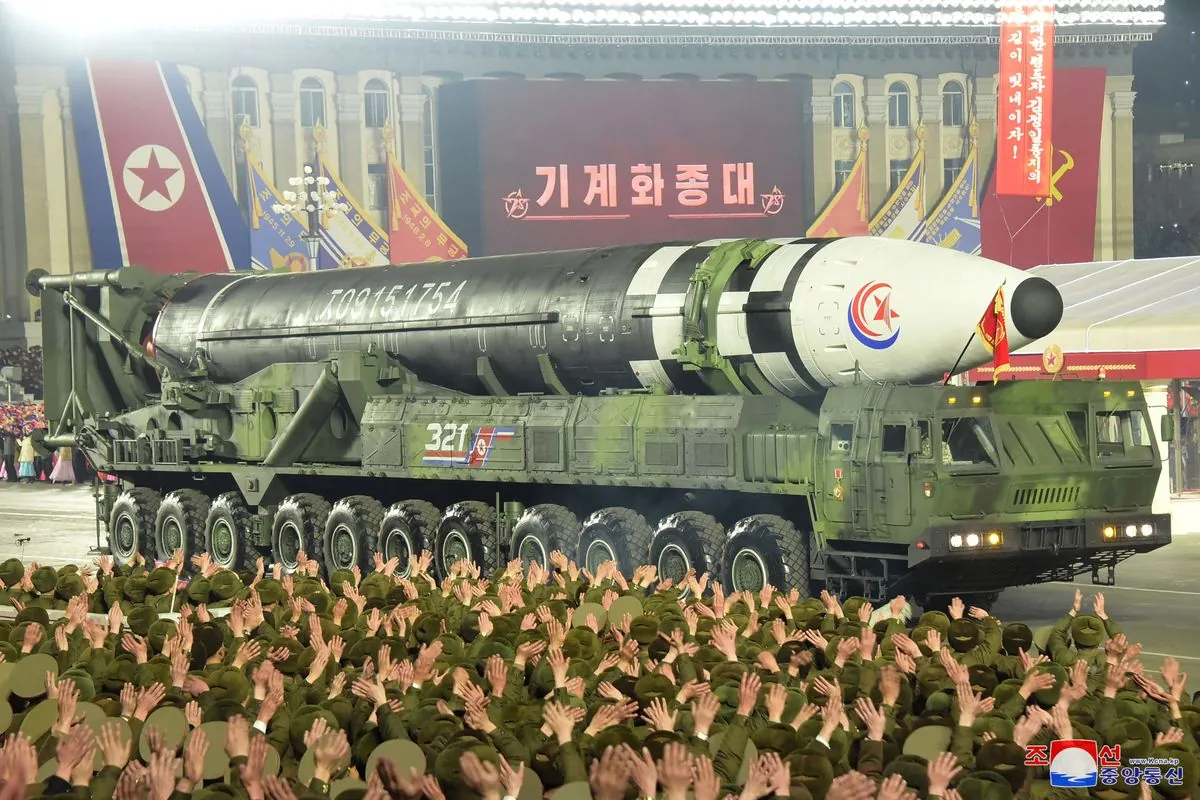Russia Dismisses North Korea's Denuclearization as "Closed Issue"
Russian Foreign Minister Lavrov declares North Korea's denuclearization a "closed issue," citing Pyongyang's reliance on nuclear weapons for defense. Russia strengthens ties with North Korea amid global tensions.

Russian Foreign Minister Sergei Lavrov has declared the concept of North Korea's denuclearization as a "closed issue," signaling a significant shift in Moscow's stance on Pyongyang's nuclear program. This statement, made on September 26, 2024, underscores the evolving geopolitical landscape in Northeast Asia.
Lavrov emphasized Russia's understanding of North Korea's logic in relying on nuclear weapons as the foundation of its defense strategy. This perspective aligns with North Korea's "Songun" or "military-first" policy, which has been a cornerstone of the country's governance since the 1990s.
The Russian diplomat expressed concern over what he termed the United States' "expanded nuclear deterrence" in the Asia-Pacific region, involving South Korea and Japan. Lavrov characterized this as "a real and extremely serious threat to regional security," reflecting Russia's growing alignment with North Korea's interests.

Russia's position on North Korea's nuclear program has undergone a significant transformation since its invasion of Ukraine in February 2022. Prior to this event, Moscow had consistently supported United Nations-backed sanctions against Pyongyang's nuclear tests, which began with North Korea's first nuclear test in 2006.
The strengthening of diplomatic and military ties between Russia and North Korea is evident in recent high-level exchanges. Vladimir Putin and Kim Jong Un have visited each other's countries, symbolizing a new era of cooperation between Moscow and Pyongyang. This relationship is particularly noteworthy given that North Korea and Russia share a 17 km land border.
North Korea's nuclear capabilities have been a source of international concern for decades. The country withdrew from the Nuclear Non-Proliferation Treaty in 2003 and has since conducted six nuclear tests, with the last one in 2017. As of 2024, North Korea is estimated to possess 20-30 nuclear weapons.
"We will never abandon our reliance on nuclear weapons to ensure our security against South Korea and the United States."
This stance is reinforced by North Korea's recent testing of new tactical ballistic missiles, as reported earlier this month. These tests align with Kim Jong Un's calls for stronger conventional weapons and nuclear capabilities, reflecting the country's "byungjin" policy of pursuing nuclear weapons and economic development simultaneously.
The international community, particularly Western countries, has responded to North Korea's nuclear program with sanctions. The United Nations has imposed sanctions on North Korea since 2006, targeting various sectors of the country's economy. However, Lavrov described these sanctions as "senseless," marking a clear departure from Russia's previous support for such measures.
Lavrov's comments also touched on the broader geopolitical context, stating that Russia would stand together with North Korea in "confronting a joint adversary" and "consistently strengthen friendship and cooperation" with Pyongyang. This rhetoric suggests a deepening alliance between the two nations in the face of international pressure.
The situation is further complicated by North Korea's alleged involvement in cyber attacks against various countries and organizations, as well as accusations of human rights violations within the country. These factors contribute to the complex web of international relations surrounding the Korean Peninsula.
As tensions continue to simmer in the region, the international community faces the challenge of addressing North Korea's nuclear ambitions while maintaining regional stability. Russia's evolving stance on this issue adds another layer of complexity to an already intricate diplomatic landscape.


































